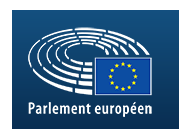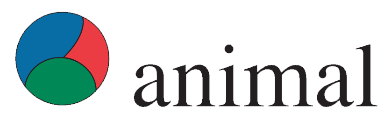Document type: Written answer from the European Commission
Authors: Question: Anja Hazekamp, Petras Auštrevičius. Answer: Ms Kyriakides on behalf of the European Commission
Question: Data from the Directorate-General for Agriculture and Rural Development (DG AGRI) shows that frozen fatty livers used for foie gras production are regularly imported into the EU from Ukraine. These imports have grown exponentially from 1 tonne in 2014 to nearly 50 tonnes in 2018.
According to the Commission, in spite of the prohibition in Directive 58/98/EC, foie gras production by force-feeding is still allowed in some Member States based on the derogations contained in the 1999 Council of Europe recommendations applicable to ducks and geese used for foie gras production, for countries that were producing foie gras through force-feeding at the time. Only five EU Member States still allow force-feeding.
Not only is Ukraine a member of the Council of Europe, but, in the framework of the EU-Ukraine Association Agreement, it is also required to comply fully with EU animal welfare legislation.
1 Can the Commission share the documentation provided by the Ukrainian authorities to show that foie gras production by force-feeding was in place in Ukraine in 1999?
2 Does the Commission agree that without such evidence the import of livers from Ukraine fattened through force-feeding would be in violation of both the Council of Europe recommendations and of EU legislation?
Answer: Directive 98/58/EC concerning the protection of animals kept for farming purposes does not prohibit the production of foie gras in the Union. According to Article 3 of that directive, Member States shall make provisions to ensure that owners or keepers take all reasonable steps to ensure that farmed species are not caused any unnecessary pain, suffering or injury.
Ukraine has not yet ratified the European Convention for the Protection of Animals kept for Farming Purposes of the Council of Europe under whose framework the Standing Committee of that Convention has adopted the recommendations mentioned by the Honourable Member. The Association Agreement between the EU and Ukraine does not require Ukraine to ratify that Convention. The ratification of international treaties by third countries is an internal procedure governed by the national law of those countries.
Against this background, the importation of frozen fatty livers for foie gras production from Ukraine does not appear to breach the Association Agreement between the EU and Ukraine.
indicates a slower clearance of BSP (bromosulfophthalein), a longer BSP half-life, and an increase in liver enzymes at the end of the force-feeding period are clear evidence of a clinical pathology". The fact that foie gras production is considered legal in some countries does not negate other EU standards on animal health, animal welfare and food safety. I would therefore like to ask the Commission the following questions:
1If this information was already in its possession, what actions has it taken to end a practice that is bound to cause clinical pathology in farm animals?
2 If it was not previously aware of the above-mentioned statement, how does intend to respond?
3 Does it consider food produced from animals that present clinical pathology fit for human consumption?
Answer: The Commission is aware of the report mentioned by the Honourable Member published in 2015. However, scientists have different opinions regarding the extent to which the welfare of animals is compromised during the production of foie gras.
Article 13 of the Treaty on the Functioning of the European Union states that: "In formulating and implementing the Union's agriculture, fisheries, transport, internal market, research and technological development and space policies, the Union and the Member States shall, since animals are sentient beings, pay full regard to the welfare requirements of animals, while respecting the legislative or administrative provisions and customs of the Member States relating in particular to religious rites, cultural traditions and regional heritage". Some Member States consider the production of foie gras as a cultural tradition and a regional heritage that the Union must respect.
The Commission is not aware of evidence indicating that foie gras represents a risk for human consumption.






